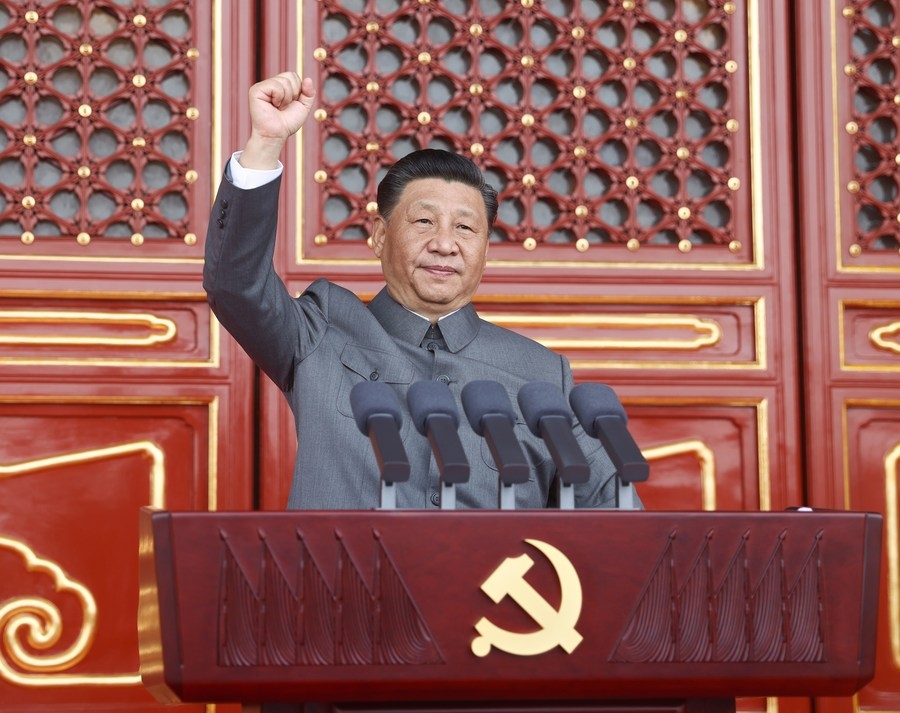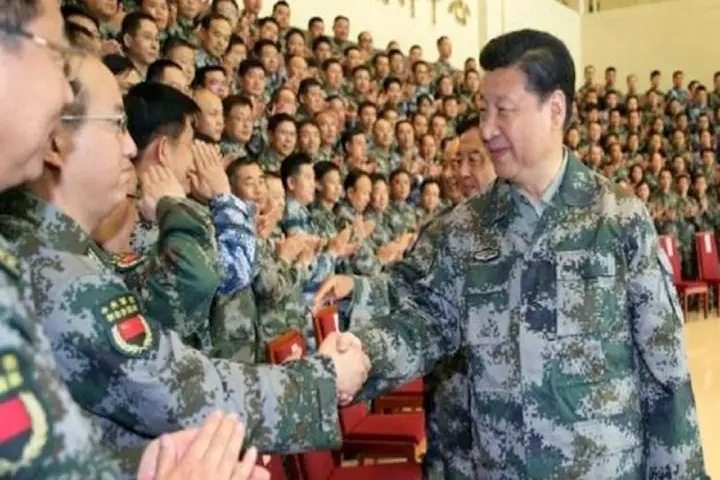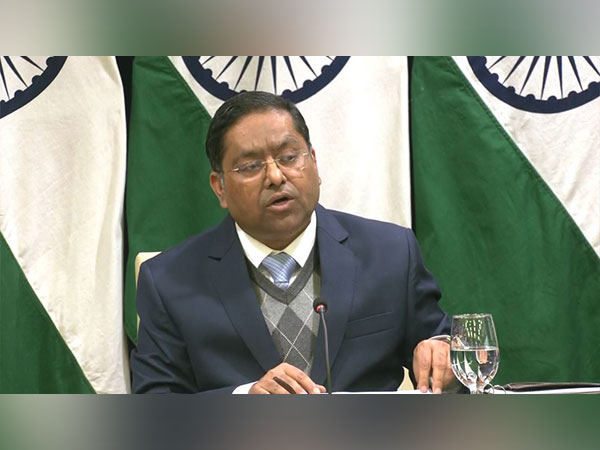As China aggressively positions itself on the global stage, the State Secrets Law amendments have far-reaching consequences for international relations. The intensified emphasis on information control and opacity poses a potential deterrent for foreign entities contemplating collaborations, casting shadows over notions of transparency and the unrestricted dissemination of information
China’s State Secrets Law is undergoing a radical overhaul with the recent submission of a draft amendment. At the sixth session of the Standing Committee of China’s top legislature, the National People’s Congress, in October last year, a draft amendment to the Law was submitted for review. Given the pervasive securitization of information in China under Xi Jinping, this review tremendously expands the purview of “secrecy work” in China. The draft amendment proposes to expand the law from 53 articles to 62 articles, including provisions for new mechanisms of accountability, new goals to fulfil through the conduct of secrecy work, and new ways to expand awareness of such work. The amendments not only consolidate power within the CCP but also make it less accountable for guarding state secrets putting Xi Jinping at the helm of all decision-making. Explicitly expounded is an unwavering commitment to the pre-eminence of the party’s leadership in matters of confidentiality, legal governance, and technological integration, thereby underscoring the singular influence of Xi Jinping. However, concerns loom large over the potential political instrumentalization of information.
The amended draft aims to achieve the two-fold goal of concentrating power in the hands of the Communist Party of China (CPC), while making it much less accountable for guarding state secrets. The draft amendment introduces a new Article 3, which says that adherence to the leadership of the CPC in protecting state secrets is now a must. This was not present in the 2010 text. There is no mention of a role for the CPC in the 2010 law, but only that of the State Council and the “central government.” By way of background, it may be mentioned that the Law on Guarding State Secrets was first enacted in 1988 and revised in 2010. It lists the items that may be considered as state secrets, specifies their categories and the authority of various government institutions to classify and declassify information, prescribes the procedures for identifying and handling classified information, and lays out the enforcement powers of departments guarding state secrets.

To begin with, the very first article in the amended draft top lists President Xi Jinping’s primary political objective, the dream of realizing the “Great Rejuvenation of the Chinese Nation.” Significantly, this is listed as one of the reasons for the current amendment to the Law. The 2010 draft Law only mentioned the aims of guarding state secrets, ensuring national security, and guaranteeing the smooth progress of reform, opening up, and “socialist construction.” Additionally, the amendment proposes moving towards “socialist modernization construction”, through secrecy work. The goal of achieving “socialist modernization” is an important agenda for Xi Jinping, since he announced a two-step plan to make China a “great modern socialist country” by 2035 at the 19th National Congress of the CPC in 2017.
Similarly, Article 4 of the draft amendment also refers to the significance of adhering to the “overall national security concept,” another one of Xi’s articulations from 2012. Article 4 also discusses adherence to the party’s leadership in secrecy, legal governance, and “the integration of technology and management, and innovative development,” canonizing the CPC’s dominant role over secrecy work in general and that of Xi Jinping, in particular. The only direct implementation role of the party emerges from the responsibility bestowed upon the Central Military Commission to dictate guidelines of secrecy work to the People’s Liberation Army (Article 60).
At the same time, other aspects of accountability discussed in the amended draft, such as the implementation of a “secrecy work responsibility system” by state organs and units dedicated to guarding state secrets (as identified in Article 8), indicate that the CPC is delegating the work to government agencies and local authorities. The broad ambit of responsibilities under this system, includes designating specific personnel to be responsible for secrecy work, improving secrecy management systems, enhancing secrecy protection measures, conducting secrecy propaganda and education, and strengthening secrecy inspections. Any deficiencies in the fulfilment of such responsibilities will trigger rebuke for government agencies from the party.
Role of Local Authorities
As per amended Article 11, local authorities will now be required to allot a separate budget for undertaking these responsibilities. This comes at a time when provincial government finances are already extremely strained. If promulgated, the amended State Secrets Law could become the worst of all worlds for state agencies, especially at the local level. Amendments introduced vis-a-vis secrecy propaganda and education also hint at some of the paranoia ailing the party-state. Even though Articles 31 and 36 of the present draft of the law make passing mention of awareness and education for personnel involved in secrecy work, the amended draft, in its 9th article, provides for the integration of secrecy work propaganda and awareness into the larger national education and cadre-training systems.
If passed, the amended law will see both an increased effort by Chinese state media to spread propaganda about guarding state secrets, as well as heightened pressure on local governments to deliver training and education programmes that lay specific emphasis on secrecy work. Significantly, CPC paranoia also manifests in guarding critical information about economic and technological developments, which have become a subject of increased securitization and contestation in the context of deteriorating China-US relations. Article 10 of the draft amendment encourages confidentiality in scientific and technological research and application, such as in core technologies, while arguing for making innovative technological strides in secrecy work itself. This may indicate use of critical tech like artificial intelligence in patrolling the safeguarding of secrets, as is evident from its use case in Xinjiang.
The interpretational ambit of what constitutes secrecy work technology is huge and can both hinder domestic and foreign collaborations on science and innovation, as well as further deployment of technologies for social suppression in the name of guarding state secrets. The persistent ambiguity in delineating the scope of “state secrets,” endures, creating formidable obstacles for both domestic and foreign entities seeking to navigate China’s regulatory landscape. Encouraging confidentiality in scientific and technological endeavours aims to fortify China’s capabilities in key sectors. However, this approach raises questions about the potential hindrance of domestic and international collaborations in science and innovation.
As China aggressively positions itself on the global stage, the State Secrets Law amendments have far-reaching consequences for international relations. The intensified emphasis on information control and opacity poses a potential deterrent for foreign entities contemplating collaborations, casting shadows over notions of transparency and the unrestricted dissemination of information. The emphasis on confidentiality in scientific and technological research, while aimed at bolstering China’s prowess in key sectors, introduces a potential dichotomy. On one hand, it signals a desire for self-reliance and a safeguarding of critical knowledge. On the other, it raises concerns about reciprocity and transparency in international collaborations.
As the global scientific community thrives on openness and shared knowledge, a China more inclined towards secrecy and control will find itself at odds with the collaborative spirit that propels innovation and breakthroughs. China’s State Secrets Law, undergoing transformation, with its heavy-handed emphasis on CPC dominance, stringent accountability mechanisms, and manipulative societal engagement, paint a disconcerting portrait of China’s authoritarian ambitions to tighten its grip on information.








